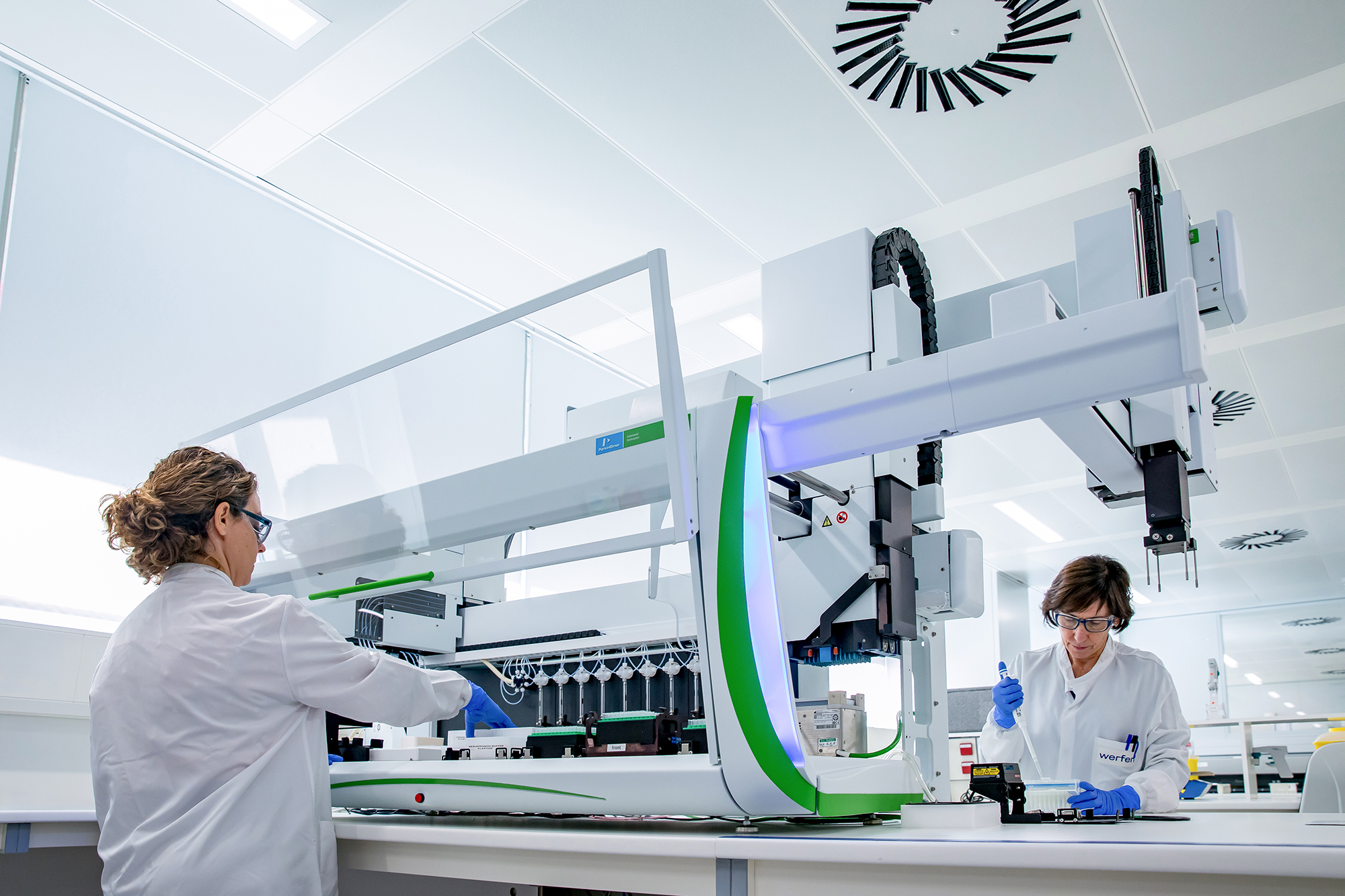
News Immunoassay
Tools to gain understanding of immunoassays
October 21, 2025

A greater knowledge about the immunoassay reduces the risk in the development
A successful immunoassay development project relies on a thorough understanding of each assay component and their interactions. This deep expertise enables teams to make informed decisions early on, efficiently directing R&D resources toward effective solutions.
By proactively addressing potential challenges at the outset, development risks are minimized before the project reaches costly and complex later stages. Early optimization not only streamlines the workflow but also safeguards against unexpected setbacks.
At Werfen, we rely on our experience in new biomaterial and immunoassay development to de-risk your immunoassay development project.
Our Approach
Traditional diagnostic assay development has often prioritized functional performance, sometimes at the expense of thoroughly characterizing the underlying biochemical properties that drive assay behavior. While a function-first approach may deliver results in straightforward cases, it can hinder troubleshooting and limit opportunities for early optimization when unexpected issues arise.
At Werfen, we bridge this gap by integrating a suite of advanced biochemical analytical techniques throughout the development process. This comprehensive strategy enables us to gain critical insights into the properties and interactions of each assay component, allowing us to predict, identify, and address potential challenges well before they escalate.
Feature | Technique |
Quantification of protein coated to microparticle | SDS-PAGE |
Quantification of protein coated to microparticle | BCA |
Size Distribution Profile | Multisizer |
Thermal Stability Analysis | NanoDSF |
Outcomes
Thanks to Incorporating advanced biochemical characterization techniques—SDS-PAGE and BCA for precise quantification of protein coated to microparticle, Multisizer for monitoring bead aggregation, and NanoDSF for assessing protein stability—we have been able to gain a clear, data-driven understanding of our assay components early in development. This analytical rigor strengthens troubleshooting, informs protocol optimization, and reduces risk, ultimately supporting the delivery of robust, high-quality IVD assays.
NEWS
Latest News
Please contact us directly via telephone or with the following form.
Tel. +34 93 860 90 00

